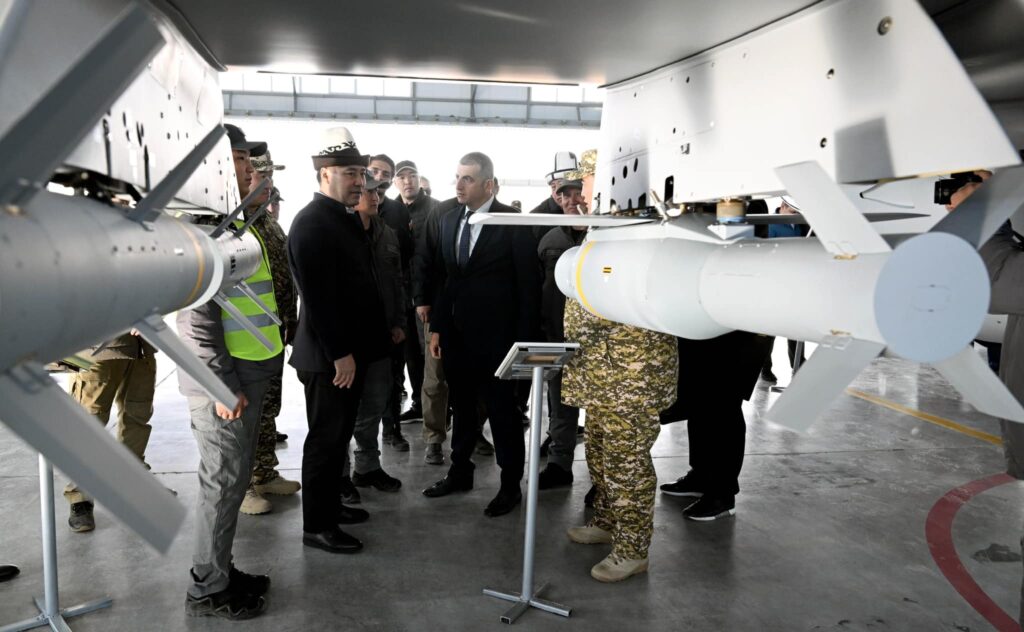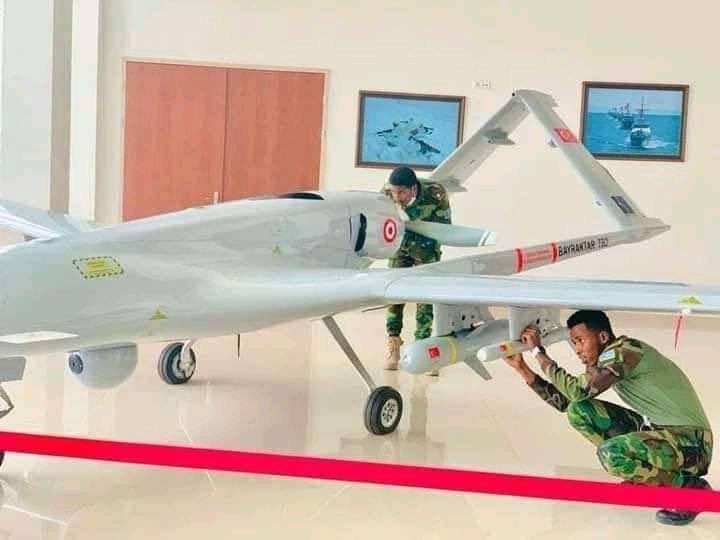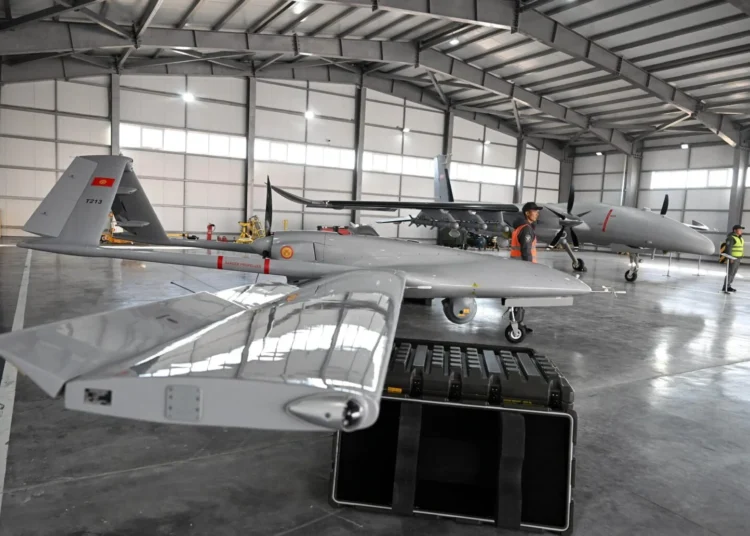Levent Kenez/Stockholm
Turkey is increasingly paying off or forgiving the debts of countries to which it sells weapons, including covering their obligations to international institutions, a practice that critics argue blurs the line between development aid and geopolitical arms financing.
A recent example is Kyrgyzstan, which acquired more than $33 million worth of Turkish military equipment including drones and armored vehicles, while simultaneously benefiting from the full cancellation of nearly $59 million in public debt owed to Ankara. The total value of military procurement is expected to rise further as newly ordered Bayraktar TB2 armed drones, currently in production according to Kyrgyz officials, are delivered in the coming months.
The debt forgiveness agreement, finalized in Bishkek in November 2024 and sent to the Turkish Parliament earlier this month for ratification, was publicly announced by Turkish President Recep Tayyip Erdogan as a gesture of support for “environmental and green economy” projects. However, the legal text of the agreement contains no reference to climate initiatives or ecological commitments, raising concerns that the stated justification is little more than a diplomatic facade.
The official debt forgiveness, totaling $58.8 million, stems from a low-interest loan Turkey gave to Kyrgyzstan in 2012. The loan, backed by a 20-year repayment schedule and a symbolic interest rate of 0.1 percent, was originally intended to support public infrastructure. Kyrgyzstan later struggled to meet its obligations and received a debt restructuring deal in 2021 under the G-20’s Debt Service Suspension Initiative.
On November 5, 2024, Turkey and Kyrgyzstan signed a bilateral debt write-off agreement, which fully cancels the outstanding balance including accrued interest. The Turkish government says the move is part of its official development assistance policy and symbolizes mutual support between the two countries.
Kamchybek Tashiev, chairman of Kyrgyzstan’s State Committee for National Security, said earlier that the country had purchased Bayraktar TB2 armed drones from Turkey, along with 40 armored vehicles, in a deal valued at 300 million Kyrgyz som (approximately $33.4 million). Tashiev also confirmed that Bayraktar Akinci and Aksungur drones had already been delivered in 2023 and are now operational, primarily for the border security forces.
“The TB2s are currently in the production line,” Tashiev said, indicating that deliveries are ongoing.

Despite official statements framing the debt relief as a development-oriented gesture, no part of the signed agreement references environmental benchmarks, green projects or sustainable development goals; in reality, it primarily serves to symbolize solidarity and strategic partnership.
Analysts have noted that similar financial patterns have been observed in Turkey’s engagement with African countries, especially Somalia.
Since 2011 Turkey has provided more than $1 billion in aid to Somalia, including direct payments to cover Somalia’s debt to the International Monetary Fund. One of those payments amounted to $3.5 million, according to official statements from the Turkish Ministry of Foreign Affairs. Turkish media reports claim that a significant portion of Turkish aid to Somalia ends up in contracts awarded to businesses close to Erdogan.
Critics say the Somali case exemplifies how development aid may be used as a tool for economic patronage. “Behind the headlines of humanitarian assistance lies a complex web of military logistics, construction contracts and influence-building,” said an international development expert familiar with Turkey’s operations in the Horn of Africa. “And many of the beneficiaries are Turkish firms with close ties to the government.”
Observers say Turkey’s model diverges from traditional Western development aid, which tends to be earmarked for specific social indicators. Ankara’s approach often bundles military cooperation, debt relief and infrastructure development under a single geopolitical framework.
The Turkish government defends its policy by pointing to its role as an emerging donor in the Global South and as an advocate for multipolar global development. A 2024 report by Turkish development agency TIKA emphasized the country’s support for state-building, resilience and green transformation in Central Asia and East Africa.

Turkey’s arms exports have surged in recent years. Its unmanned aerial vehicles including the Bayraktar TB2, Akinci and Aksungur have become symbols of the Turkish defense industry.
Ankara’s ability to forgive sovereign debt while simultaneously boosting defense sales suggests a deliberate strategy to expand influence in regions where traditional powers are retreating or facing credibility challenges.
In 2023 alone Turkey’s defense exports reached $5.5 billion, a 31 percent increase from the previous year, according to data from the Turkish Exporters Assembly.
While opposition figures question these unilateral financial aid packages at a time when Turkey’s economy is increasingly under strain, the Turkish Foreign Ministry views them as instruments that enhance the country’s international influence.












